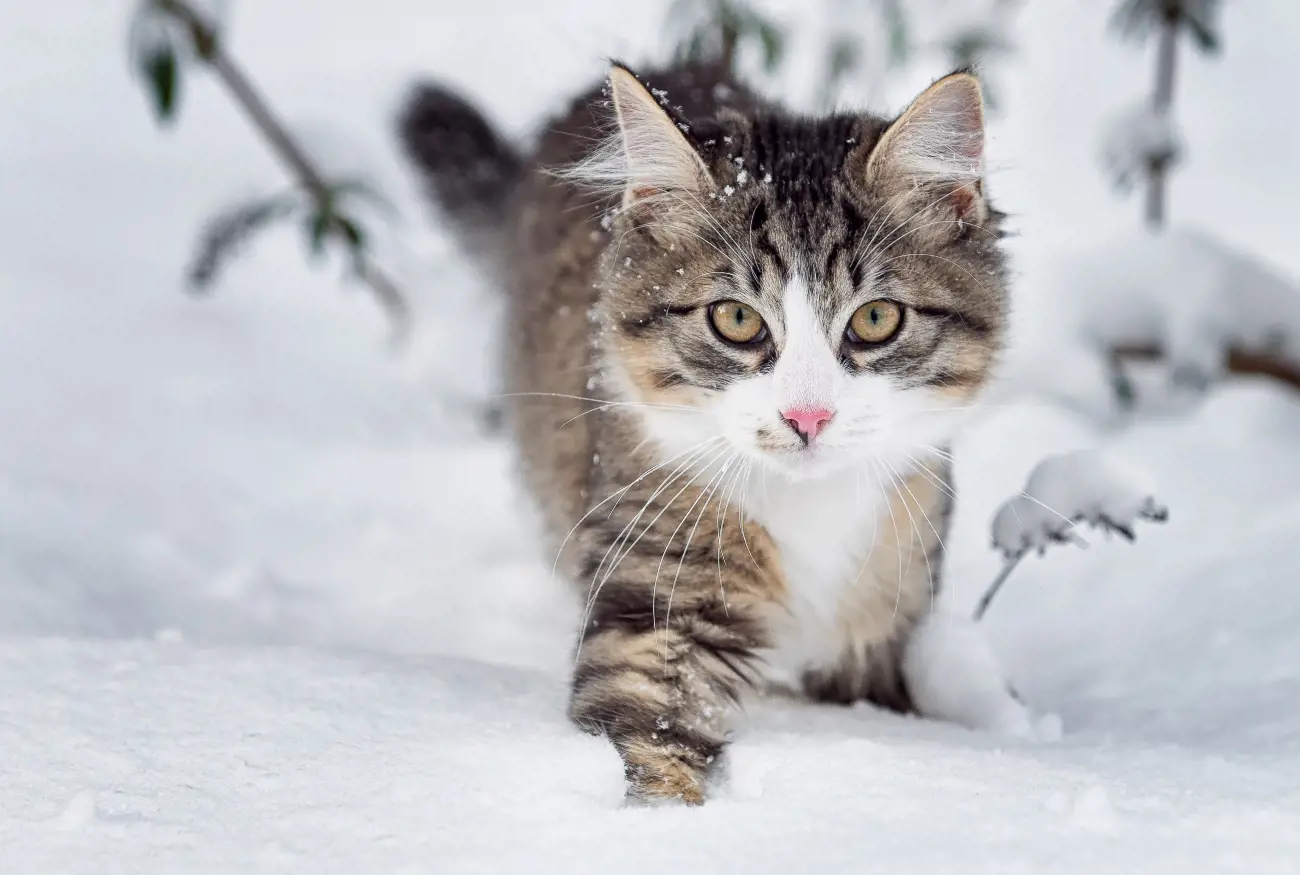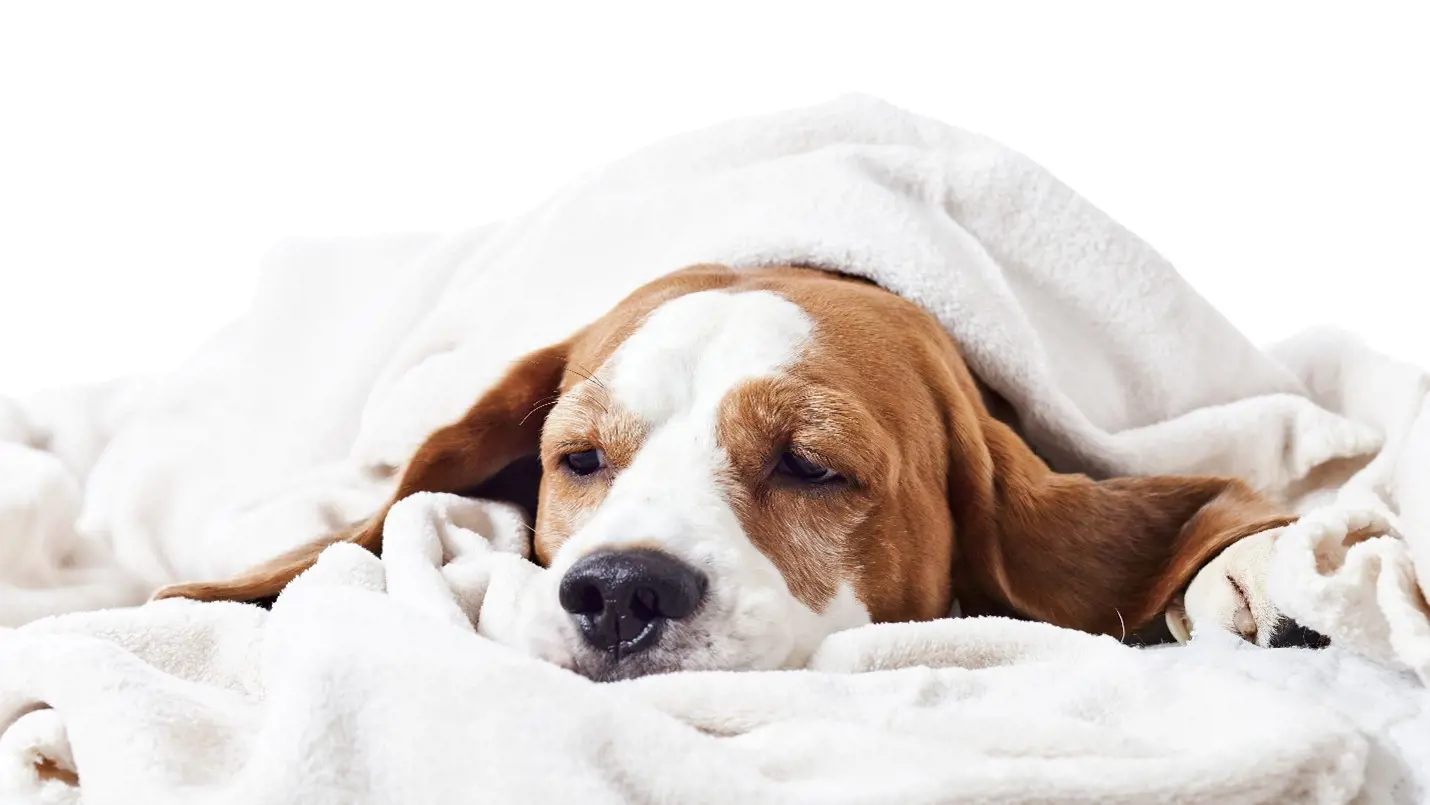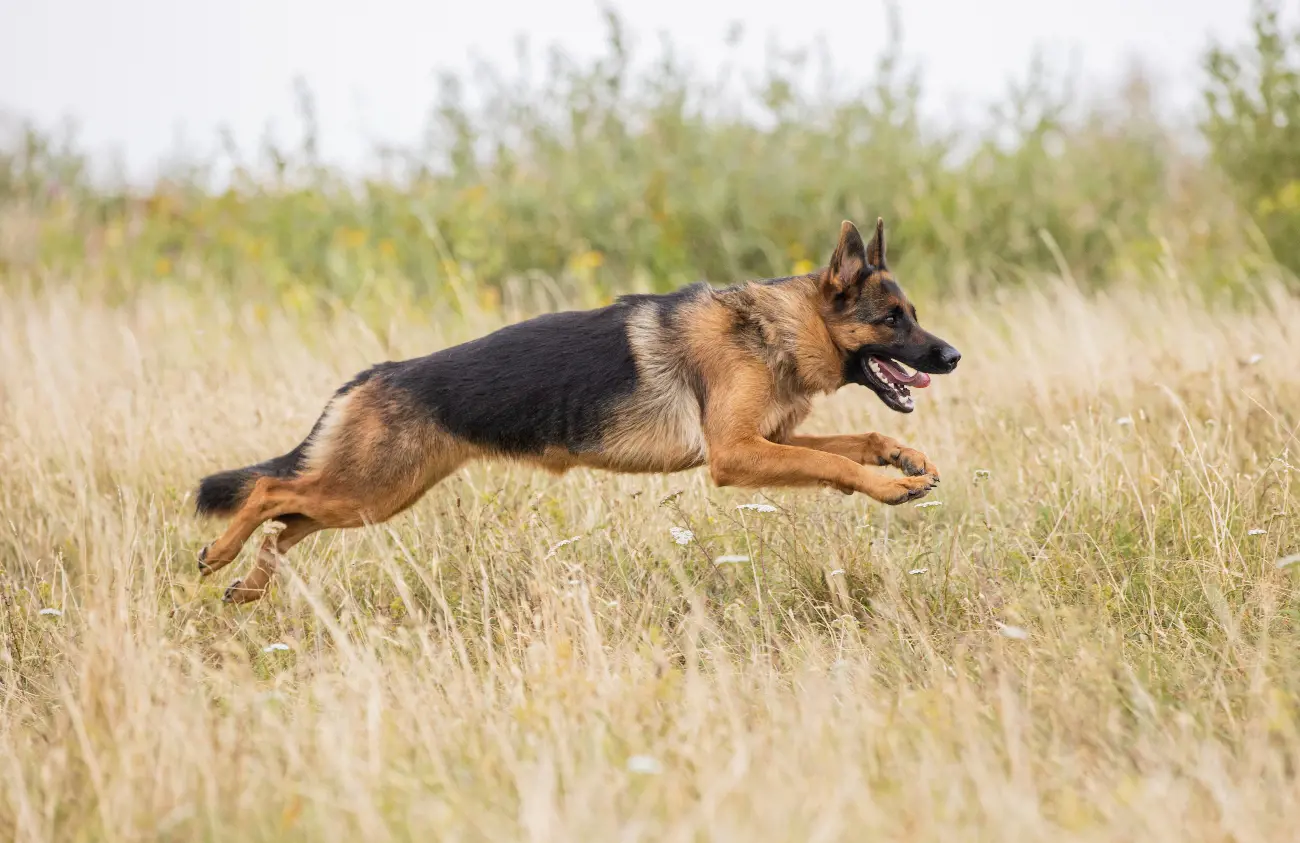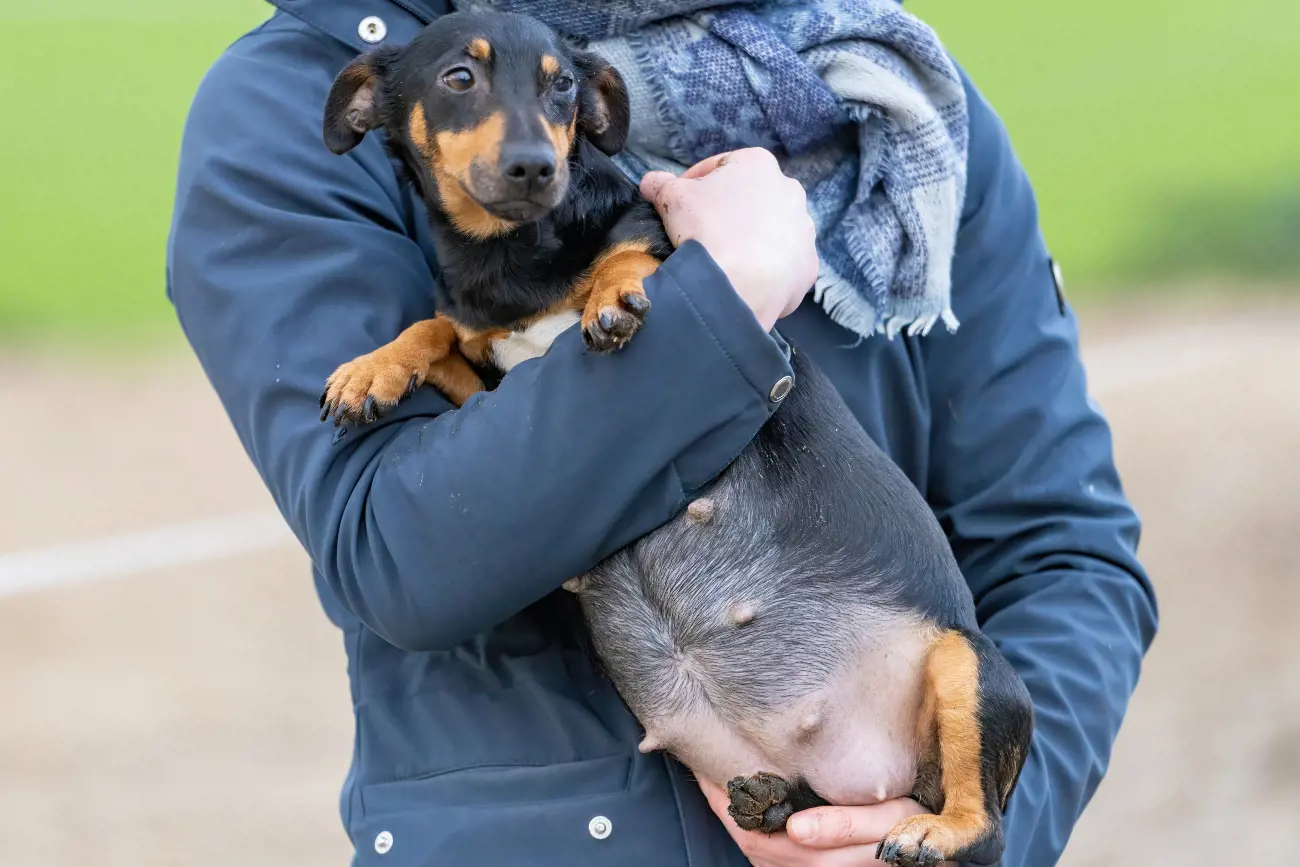Basic first aid for cats and dogs
4th March, 2021
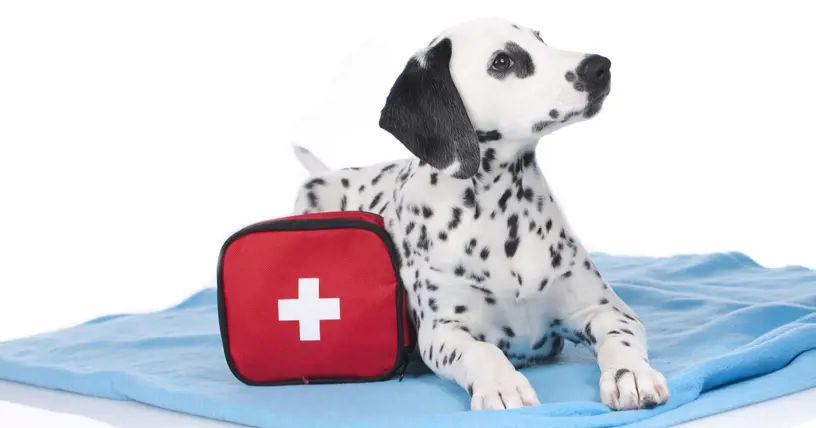
It’s always best to seek professional veterinary treatment when your pet gets hurt. However, in some situations you may need to act immediately or care for your pet until you can get them to the vet.
In this blog, we'll take a look at some of the emergency situations you might encounter and how you should respond.
The most important thing is to keep calm and assess the situation before acting. As Blue Cross explains, injured animals are frightened and in pain, and may try to bite anyone who touches them. Try to keep your voice as calm as possible and approach your pet slowly, avoiding sudden movements.
Never give human medicines to your pet and do not offer food or drink in case they need to have an urgent anaesthetic.
Once you've given your pet some basic first aid, you should see your vet as soon as possible.
The cost of emergency veterinary treatment can soon add up – especially if it's out of hours. But with pet insurance from Purely Pets you can be covered for vets bills for accidents, illness or both. Many policies also provide added benefits such as cover for dentistry, loss of pet, third party liability and overseas travel.
Why you should know basic first aid for pets
Some situations – such as choking, drowning, heatstroke and excessive bleeding – call for immediate assistance. Even if you live next door to the vet, you won't always be able to get expert help straight away.
Here's a rundown of some of the common situations requiring first aid, and how to deal with them...
Basic resuscitation
Put the animal on their side and check that breathing has definitely stopped (for example by holding a wisp of fur to the nostrils).
Open the mouth, pull the tongue forward and check for obstructions. If you can see something blocking the airway, pull it out.
If breathing does not start, check for a heartbeat. If you can’t hear or feel a heartbeat, start CPR.
Here's what veterinary charity PDSA says you should do:
-
Place your pet on their right side on a firm, flat surface. Put dogs with barrel-shaped chests on their backs and find the midpoint of the chest. This is where you’ll start compressions.
-
Compress the chest at 2 per second at the widest part of the chest. (Thinking about the song ‘Staying Alive’ will help you keep time.)
-
For large dogs, use both hands interlocked.
-
For small dogs, use one hand.
-
For cats use one hand to compress the chest from both sides while they are lying on their side.
-
-
Each compression should depress the chest by a half to two thirds and the chest should be allowed to return to the normal position after each compression.
-
Keep your arms straight and if you have someone with you, swap over regularly.
-
After 30 compressions, extend their neck, close the mouth and blow down their nose. Give 2 breaths of 1 second, allowing 1 second for the chest to fall.
-
If the dog is small, make a seal with your mouth around its nose. If the dog is large, blow down the nostrils from the front.
-
Check for a heartbeat.
-
If the dog is still not breathing and there is no heartbeat, repeat the process – giving 30 compressions and 2 breaths – until veterinary help arrives or until the heartbeat and breathing return.
If your pet’s heartbeat and breathing return, you should still take them to the vet for an emergency check-up.
Bleeding
If your pet is bleeding heavily, find where the blood is coming from and apply pressure by holding a clean cloth or bandage over it.
Call your vet immediately if you can’t control the bleeding or you think they might be bleeding internally.
Broken bones and tail injuries
Broken bones are one of the most painful injuries a pet can sustain.
Deal with any serious bleeding by applying light pressure. Cover wounds with a clean bandage or cloth. Do not apply a splint.
Take your pet to the vet as soon as possible.
You should also see the vet if your cat’s tail is limp, has been trapped in a door or pulled hard, says Blue Cross. Such injuries can cause serious bladder problems.
Whatever treatment your cat or dog might need, pet insurance will help ensure they are soon on the road to recovery.
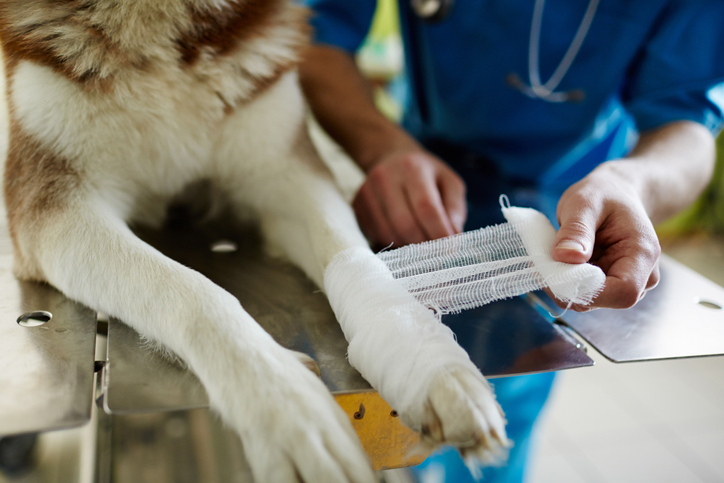
Burns and scalds
Run cold water over the burn for at least five minutes, or place the burnt skin in cold water. Avoid using any creams or ointments.
Keep your pet warm with a blanket and call your vet for an emergency appointment.
Choking
Common choking hazards for pets include large pieces of food, balls, toys, chews and sticks.
Anything stuck in your pet's airway is a medical emergency and can quickly escalate to breathlessness and death.
If your pet is choking, they will struggle to breathe and you might see them pawing at their face. They may open their mouth and lunge the body forward in an attempt to dislodge the object.
If you can see something in the mouth, use pliers or tweezers to remove it. If your pet is unconscious it's okay to open their mouth, gently sweep your fingers across the back of their throat and remove anything that is lodged there – but don’t attempt this if they’re awake as they may bite.
If you can't remove the object, the advice from PDSA is to:
-
Lay your pet on their side and put your hands on their rib cage.
-
Push quickly and firmly or strike the rib cage with the flat of your hand three to four times, to help push air and the object out of the body.
-
Repeat until the object comes out.
If the object doesn’t come out within a few minutes, call your vet straight away for an emergency appointment.
Drowning
Never risk your life attempting to rescue a drowning pet. If you find your cat or dog unconscious in water, wipe away material from the mouth and nose and hold the animal upside down by the hindlegs to allow water to drain out.
Give resuscitation (see above) if breathing has stopped. And even if your pet seems to recover, take them to the vet for a check-up as complications afterwards are common.
Electric shock
Firstly, make sure you are safe: this means do not touch your pet until the power is turned off at its source. If this is not possible, use a dry non-metallic item, like a broom handle, to move the animal away from the power source.
If a high voltage, non-domestic supply is involved (such as power lines), do not approach. Call the police.
Once safely clear of the electrical source, check your pet's pulse and breathing. If the heart and breathing have stopped, give resuscitation (see above) and call the vet immediately.
With pet insurance from Purely Pets, you'll have cover for emergency veterinary care whenever it's needed.
Eye injuries
Contact your vet immediately if there has been trauma, if your pet has a closed or discharging eye, or for any sudden eye problem. If chemicals have entered the eye, flush out with water repeatedly (preferably from an eyewash phial) and call the vet.
A cone-shaped collar will help prevent your pet from rubbing their sore eye.
Heatstroke
Common signs of heatstroke including panting, trouble breathing and collapse.
Wet your pet's feet, ears and fur with tepid water to help cool them down. Never use ice or very cold water, as this could cause shock. You could also use a fan or air-conditioning to cool the air around them.
Give them cool (not freezing cold) water to drink and keep them cool on the way to the vet.

Insect stings and allergic reactions
If your pet is having an allergic reaction or has been stung by an insect, they may develop swelling (commonly on the face) and in more severe cases they may have difficulty breathing.
For insect stings, pull out the sting by pressing below the poison sac, then bathe the area in water and apply a solution of bicarbonate of soda (bee sting) or diluted vinegar (wasp). Soothe with ice. If the sting is in the mouth or throat, contact your vet as it may swell and interfere with breathing.
If you think your cat or dog is having a mild allergic reaction, call your vet for advice.
In cases of a severe allergic reaction, where your pet is having difficulty breathing or their face/neck/throat is swelling up quickly, PDSA recommends going straight to your vets. If possible, phone the vets on the way to let them know you are coming.
By having suitable pet insurance, you can be sure your pet will get all the care they need.
Poisoning
Step one is to remove the poisonous/toxic substance. If your pet still has any in their mouth, tempt them to drop it by using a toy. And if they have any of it on their fur, remove it.
Phone your vet straight away if you think your pet may have eaten something poisonous. Never wait to see if your pet develops symptoms – it can sometimes take hours or days for an animal to show signs of poisoning.
Don’t try to make your pet vomit unless your vet tells you to – sometimes it can cause more harm than good.
If you have any packaging, or remains of the item ingested, take them or photos of them when you go to the vet's.
Road accidents
PDSA lists some signs that your pet has been hit by a car, including:
-
Scuffed claws
-
Wounds
-
Limping/stiffness
-
Breathing problems
-
Growling or crying in pain
-
Low energy (lethargy)
-
Pale gums
-
Cold feet and ears
Any pet involved in a road traffic accident should be checked by a vet straight away. Even if they appear to be unhurt, there could be internal injuries.
Make sure you are both safe, and stay calm to reassure your pet. Carefully pick up the animal, supporting their head, neck and back by putting one arm under their head and shoulders and another arm under their pelvis. Keep them warm, and take them to the surgery as soon as possible.
Seizure
If your pet is having a fit, do not try to hold or comfort the animal, as this provides stimulation, which may prolong the fit. Instead, darken the room and reduce noise. Remove any items that may cause injury and contact your vet.
Pet insurance is designed to ensure your pet gets the care they deserve, whatever the emergency.
What should you have as a basic first aid kit?
The last thing you need in an emergency is to be hunting around the house for medical and other supplies. To save precious time, it's well worth putting all of your pet's first-aid supplies in a box or bag.
For dog owners, there's the added bonus that you can easily take it with you when you're heading out in the car.
Your pet's first aid kit should include:
-
cotton wool
-
sterile absorbent gauze
-
antiseptic wipes
-
non-adhesive absorbent dressings to cover open wounds, as well as surgical sticky tape and bandages
-
blunt-ended scissors
-
tweezers
-
tick tweezers
-
protective gloves
-
a towel or blanket
-
emergency numbers for your vet
Some other useful items to consider are:
-
cleansing wipes
-
saline solution to wash away dirt and debris
-
an old favourite toy
-
bottle of water and spare bowl
-
foil blanket to retain body warmth and help combat shock
-
cone-shaped collar (known as an Elizabethan collar)
-
an old collar and lead
-
torch
-
your pet's vaccination record and any other paperwork
St John Ambulance offer a Pet First Aid Kit priced at £15.60. The kit contains essential items including a disposable foil blanket, sterile gauze swabs and sterile dressings, sterile moist cleansing wipes, latex free protective gloves, eyewash phials, plastic tweezers and a conforming bandage.
And remember, you should always see your vet for a check-up after giving your pet any basic first aid.
Pet insurance from Purely Pets
Purely Pets are pet insurance specialists. We provide cover for dogs and cats – as well as multi-pet households – and our Gold products have been awarded a 5* Defaqto rating for 2021!
We have a dedicated team based in the UK who aim to make insuring your pet easy, simple and transparent.
Choose the policy that suits your budget and requirements, with 15 levels of Lifetime cover and an excess starting from just £60. And our online policy management portal gives you greater flexibility in managing your pet insurance policy at a time to suit you.
Why not get a quote today?
Policy benefits, features and discounts offered may very between insurance schemes or cover selected and are subject to underwriting criteria. Information contained within this article is accurate at the time of publishing but may be subject to change.
Helpful Pages
Recent Posts
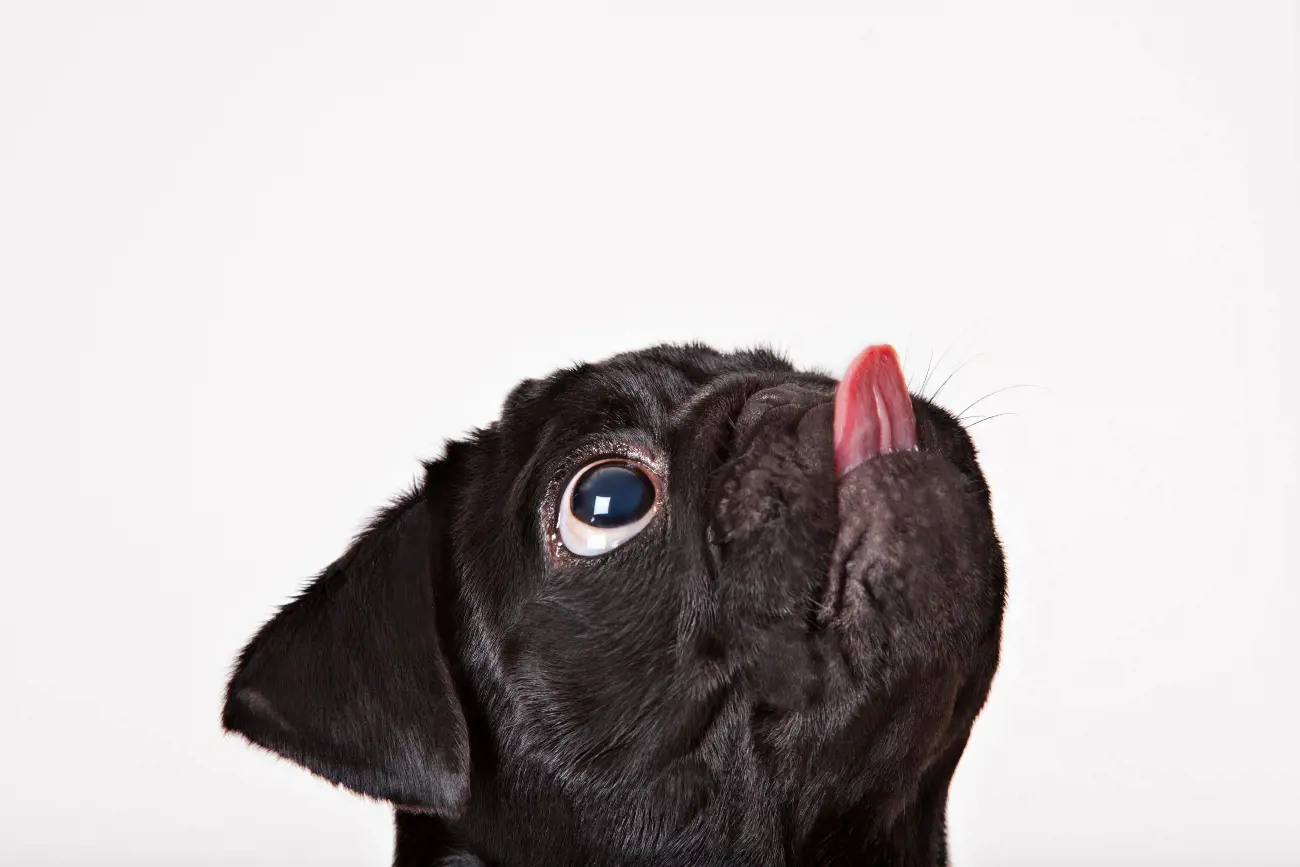
Why do Pugs lick the air?
02/10/24Pet Insurance Quote
- 98% claims paid *
- Claims paid directly to vets
- 24/7 vet video consultations
- Interest free monthly payments
